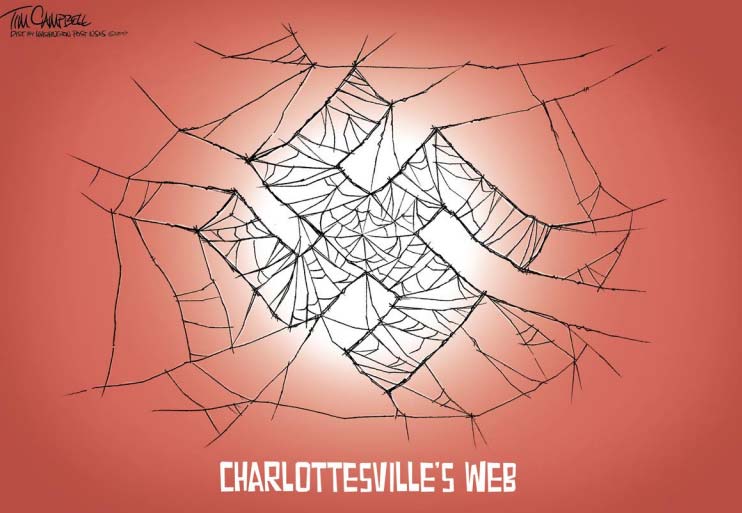
Last year around this time (and the year before that), I was arguing with some of my fellow conservatives about the insanity of finding any common cause whatsoever with the so-called alt-right. The issue wasn't that every avowed nationalist who claimed membership in the alt-right was a Nazi or Klansman. It was that the alt-right was open to Nazis and Klansmen. And why wouldn't these newly minted white supremacists welcome such pioneering organizations to their cause?
Right-wing cynics, hucksters and opportunists deliberately blurred these distinctions in the name of a right-wing popular front.
In Bannon's case, and in the case of so many on the right who pulled their oars to the beat of Bannon's drum, the motivation wasn't racism or anti-Semitism; it was the need to win at all costs (or to make a profit).
Win what? Well, that varied. At first it was the war on the "establishment," including
As the primaries wound down, the imperative for unity intensified. Why look under rocks when you can use them as stepping stones to victory? Besides, Trump was making it as clear as possible that he welcomed support and praise from any quarter.
The right's game of footsie with the alt-right ostensibly ended when Trump won. Bannon disavowed them once he made it to the
Whatever its status at the
No, the real threat to traditional conservatism is the mindset that made it possible to form even a theoretical alliance with the alt-right in the first place: the idea that winning and fighting are self-justifying.
Over the last decade, many on the right have convinced themselves that the real problem with conservatism is a lack of will. They admiringly quote left-wing activist
During the campaign, when Trump attacked the ethnicity of an American judge or the parents of a fallen Muslim
Such amorality was warranted, many explained, because if Clinton had won, America would be "over." National security official
The election is over. Yet that spirit not only endures, it has intensified. Trump's conservative critics, or "apostates" as
I'd point out that such thinking could invite the worst and most opportunistic creatures to infiltrate the movement. Except they already have.
Comment by clicking here.
Jonah Goldberg is a fellow at the American Enterprise Institute and editor-at-large of National Review Online.


 Contact The Editor
Contact The Editor
 Articles By This Author
Articles By This Author